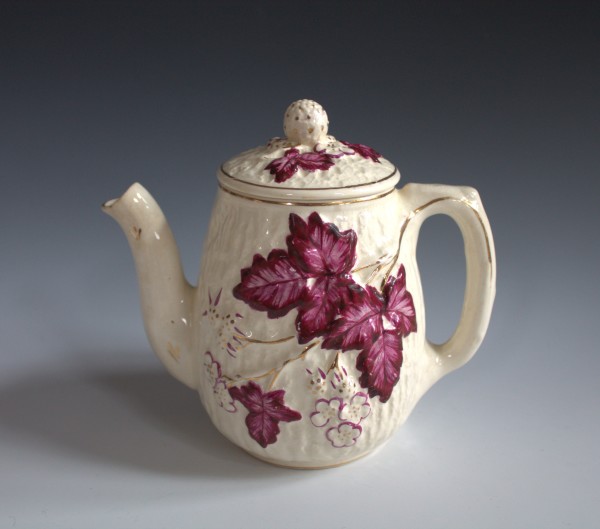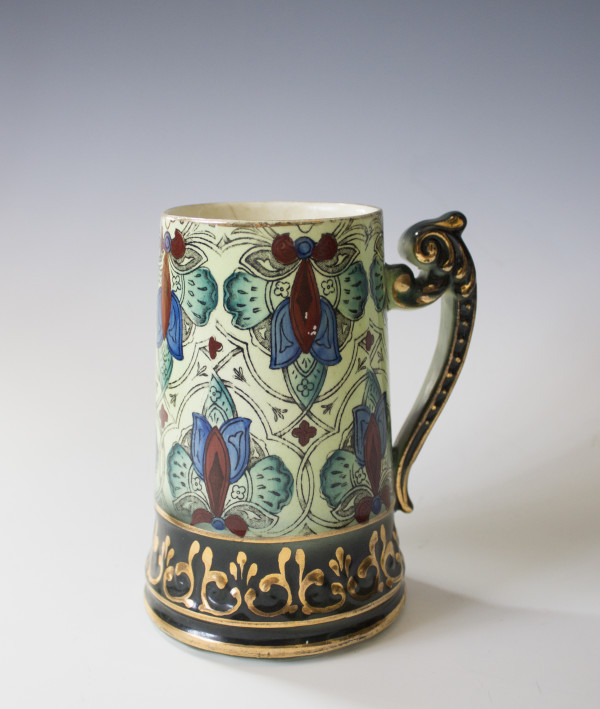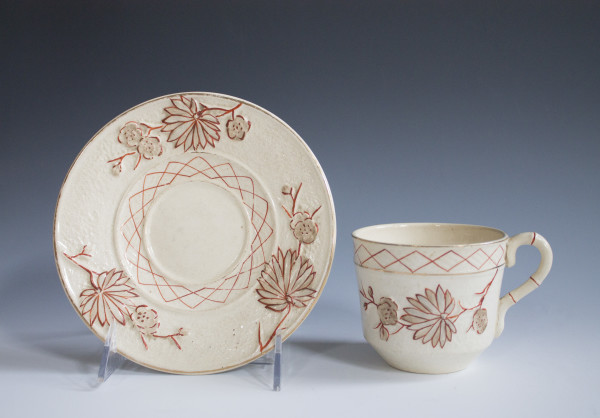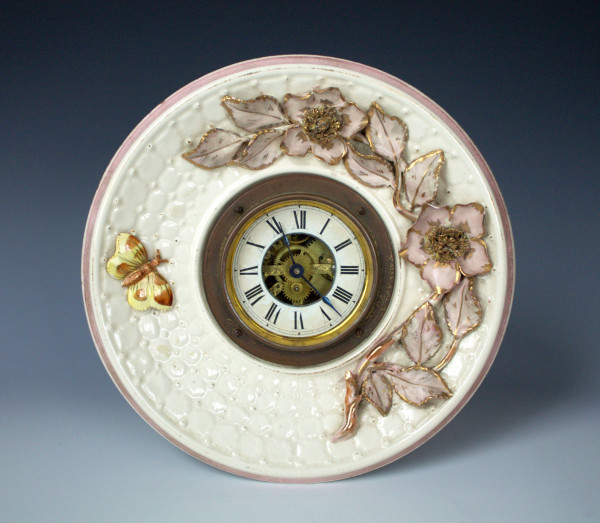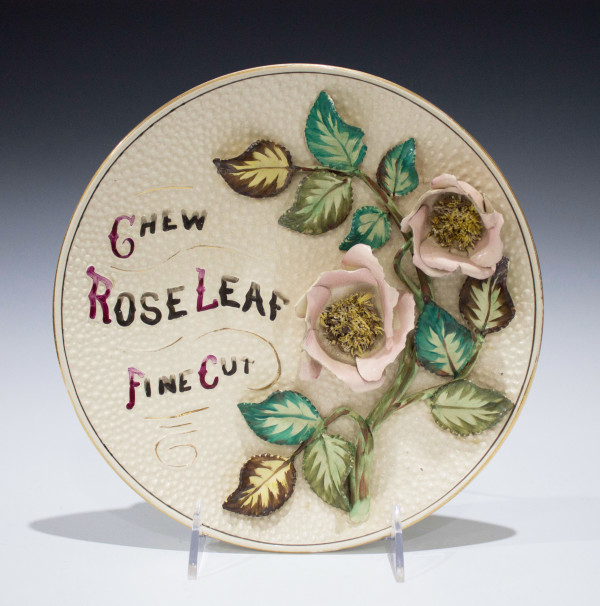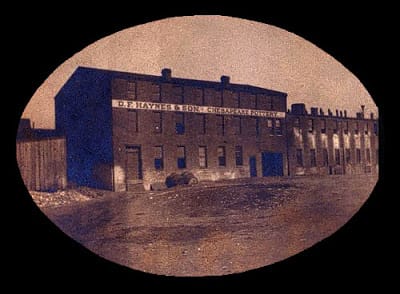
-
Artist: Chesapeake Pottery (1880-1914)
Excerpt by Barbara and Ken Beem:
In 1879 Haynes became the sole distributor for the Maryland Queensware Factory, a newly established Baltimore pottery that produced whiteware. The factory was located at Fawn and President Streets, just a few blocks west of the Bennett pottery.[11]
Shortly thereafter, in 1880, three Englishmen with extensive potting experience—Isaac Brougham, Henry Brougham, and John Tunstall—formed the Chesapeake Pottery, constructed in an area of South Baltimore called Locust Point, at the corner of Decatur and Nicholson streets.[12] The three tried to replicate the Rockingham ware that Bennett had marketed successfully for more than thirty years from a site just across the harbor. Unfortunately, those wares were considered primitive and countrified by that time and, to make matters worse, the output of the new company was clearly inferior in quality to that of the Bennett factory.
When the floundering Chesapeake Pottery was offered for sale in 1882, David Haynes saw an opportunity to realize his artistic ambitions. He bought the two-building, single-kiln operation in the spring of that year, while abandoning all attachments to the Maryland Queensware Factory.[13]
Haynes wasted little time in revamping his new acquisition. He expanded the facilities and hired two experienced English potters to help run the facility. Lewis Taft, formerly of William Brownfield & Son of Cobridge, Staffordshire, was put in charge of glazes, bodies, and kilns, making him responsible for the pottery’s production. Frederick Hackney, a majolica specialist who had left Wedgwood to found the Railway Pottery in Stoke-on-Trent, Staffordshire, was hired to oversee modeling, essentially becoming the chief designer.[14] With these changes in place, the factory immediately stopped producing Rockingham ware and turned to white earthenware, jasperware, “majolica,” and a refined stoneware. Haynes, however, had his sights set higher. He wanted to make porcelain.
All object images © LB Laub. Please do not use without permission.
Powered by Artwork Archive

